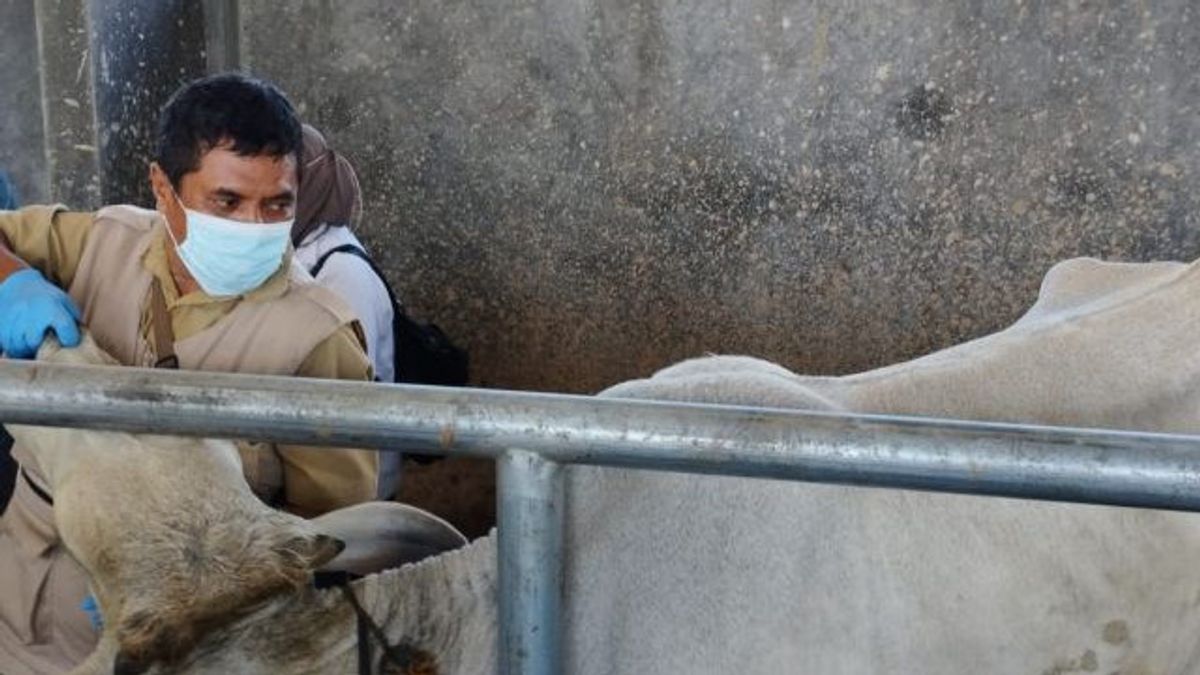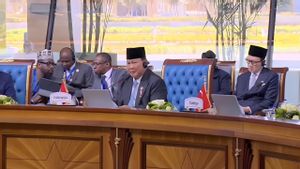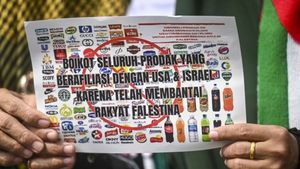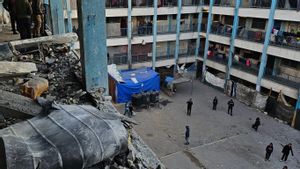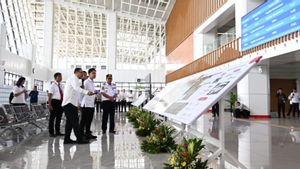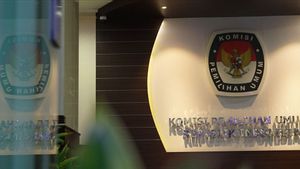JAKARTA - The Nahdlatul Ulama (PCNU) Branch Manager of Bogor City invites people who are able to continue to carry out sacrifices on Eid al-Adha 1443 Hijri amidst the threat of an epidemic of mouth and nail disease (PMK) in cattle, goats and sheep.
The Acting Chair of the PCNU for the City of Bogor, Romy Prasetya, said that PMK was indeed a disaster that would certainly provide good lessons and challenges for the community at the moment of Eid.
"If people who can afford it remain determined to make sacrifices by complying with the legal criteria for sacrificial animals in the midst of this PMK, it will definitely continue to run well and help the poor," Romy said as quoted by Antara, Thursday, June 30.
According to him, Nahdlatul Ulama, the Indonesian Ulema Council (MUI) and Muhammadiyah agree on how to respond to the situation of victims during the PMK outbreak. Cows, goats and sheep that are infected with the disease but only have mild symptoms, such as drooling or sores between their nails, are still allowed to be sacrificed.
Meanwhile, cows, goats and sheep that have severe symptoms according to local veterinary standards may not be used as sacrificial animals.
"So people just need to pay attention to these criteria, have a sincere intention to make sacrifices," he said.
It is known that the Ministry of Religion issued circular letter number 10/2022 regarding the Implementation of Eid Prayers and the Implementation of Sacrifice 1443 Hijri/2022.
Among other things, the circular regulates the implementation of health protocols during Eid prayers and the implementation of sacrifices, takbiran, sermons, shari'a provisions for sacrificing, to technical slaughter, skinning, enumeration, packaging and distribution of sacrificial meat.
Minister of Religion Yaqut Cholil Qoumas said, specifically for the sacrifice of slaughtering animals on Eid al-Adha, the law is sunnah muakkadah. However, Muslims are advised not to force themselves to sacrifice during an epidemic of mouth and nail disease (PMK).
He appealed to Muslims to buy sacrificial animals that were healthy and without defects according to the criteria, and to keep them in good health until the day of slaughter.
"Officers and the public must pay attention to the Circular of the Minister of Agriculture regarding the implementation of animal sacrifice and slaughter in situations of foot and mouth disease," he said.
For Muslims who intend to make sacrifices and are in outbreak areas or the outermost areas and areas suspected of PMK, the Minister of Religion appealed to slaughter at Slaughterhouses (RPH).
"Or entrust the purchase, slaughter, and distribution of sacrificial animals to the Amil Zakat Agency, the Amil Zakat Institution, or other institutions that meet the requirements," he said.
The English, Chinese, Japanese, Arabic, and French versions are automatically generated by the AI. So there may still be inaccuracies in translating, please always see Indonesian as our main language. (system supported by DigitalSiber.id)
